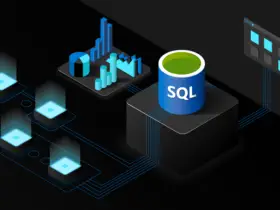

Azure Container Instances Distributed Operations (acido CLI) for Red Team Operations through Azure Cloud.
acido 0.13
Acido stands for Azure Container Instance Distributed Operations, with acido you can easily deploy container instances in Azure and distribute the workload of a particular task, for example, a port scanning task which has an input file with x hosts is splitted and distributed between y instances.
This tool is inspired by axiom where you can just spin up hundreds of instances to perform a distributed nmap/ffuf/screenshotting scan, and then delete them after they have finished.
Depending on your quota limit you may need to open a ticket to Azure to request container group limits increase.
Add an alias in .bashrc / .zshrc:
alias acido='python3 -m acido.cli'
Usage:
usage: acido [-h] [-c] [-f FLEET] [-im IMAGE_NAME] [-n NUM_INSTANCES] [-t TASK] [-e EXEC_CMD] [-i INPUT_FILE] [-w WAIT] [-s SELECT] [-l] [-r REMOVE] [-in]
[-sh SHELL] [-d DOWNLOAD_INPUT] [-o WRITE_TO_FILE] [-rwd]
optional arguments:
-h, --help show this help message and exit
-c, --config Start configuration of acido.
-f FLEET, --fleet FLEET
Create new fleet.
-im IMAGE_NAME, --image IMAGE_NAME
Deploy an specific image.
-n NUM_INSTANCES, --num-instances NUM_INSTANCES
Instances that the operation affect
-t TASK, --task TASK Execute command as an entrypoint in the fleet.
-e EXEC_CMD, --exec EXEC_CMD
Execute command on a running instance.
-i INPUT_FILE, --input-file INPUT_FILE
The name of the file to use on the task.
-w WAIT, --wait WAIT Set max timeout for the instance to finish.
-s SELECT, --select SELECT
Select instances matching name/regex.
-l, --list List all instances.
-r REMOVE, --rm REMOVE
Remove instances matching name/regex.
-in, --interactive Start interactive acido session.
-sh SHELL, --shell SHELL
Execute command and upload to blob.
-d DOWNLOAD_INPUT, --download DOWNLOAD_INPUT
Download file contents remotely from the acido blob.
-o WRITE_TO_FILE, --output WRITE_TO_FILE
Save the output of the machines in JSON format.
-rwd, --rm-when-done Remove the container groups after finish.
Example usage with nmap
In this example we are going to:
- Create our base container image with acido (required) and nmap.
- Create 20 containers.
- Run a nmap scan using the 20 containers.
Step 1: Create the base image
Dockerfile (merabytes.azurecr.io/ubuntu:latest):
FROM ubuntu:20.04 RUN apt-get update && apt-get install python3 python3-pip python3-dev -y RUN python3 -m pip install acido RUN apt-get install nmap -y CMD ["sleep", "infinity"]
This will install acido & nmap on our base docker image (merabytes.azurecr.io/ubuntu:latest).
To upload the image to the registry, as always go to the folder of your Dockerfile and:
docker login merabytes.azurecr.io docker build -t ubuntu . docker tag ubuntu merabytes.azurecr.io/ubuntu:latest docker push merabytes.azurecr.io/ubuntu:latest
Step 2: Run the scan
$ cat file.txt
merabytes.com
uber.com
facebook.com
...
$ acido -f ubuntu \
-n 20 \
--image merabytes.azurecr.io/ubuntu:latest \
-t 'nmap -iL input -p 0-200' \
-i file.txt \
-o output
[+] Selecting I/O storage account (acido).
[+] Splitting into 20 files.
[+] Uploaded 20 targets lists.
[+] Successfully created new group/s: [ ubuntu-01 ubuntu-02 ]
[+] Successfully created new instance/s: [ ubuntu-01-01 ubuntu-01-02 ubuntu-01-03 ubuntu-01-04 ubuntu-01-05 ubuntu-01-06 ubuntu-01-07 ubuntu-01-08 ubuntu-01-09 ubuntu-01-10 ubuntu-02-01 ubuntu-02-02 ubuntu-02-03 ubuntu-02-04 ubuntu-02-05 ubuntu-02-06 ubuntu-02-07 ubuntu-02-08 ubuntu-02-09 ubuntu-02-10 ]
[+] Waiting 2 minutes until the machines get provisioned...
[+] Waiting for outputs...
[+] Executed command on ubuntu-02-01. Output: [
Starting Nmap 7.80 ( https://nmap.org ) at ...
...
]
[+] Executed command on ubuntu-02-02. Output: [
Starting Nmap 7.80 ( https://nmap.org ) at ...
...
]
...
[+] Saved container outputs at: output.json
[+] Saved merged outputs at: all_output.txt.
The result of doing this, is that acido automatically creates 2 container groups with 10 instances, splits the targets file into 20 chunks, uploads the chunks to the instances with the name “input”, runs the command provided with -t and after finishing, saves the output to a JSON file.
Requirements
OS: Mac OS / Linux / Windows
Requirement 1: Login to Azure & Create an Azure Container Registry
$ az login $ az acr create --resource-group Merabytes \ --name merabytes --sku Basic
Requirement 2: Install acido and configure your RG & Registry
pip install acido python3 -m acido.cli -c $ acido -c [+] Selecting I/O storage account (acido). [!] Please provide a Resource Group Name to deploy the ACIs: Merabytes [!] Image Registry Server: merabytes.azurecr.io [!] Image Registry Username: merabytes [!] Image Registry Password: ********* $
Optional requirement (–exec): Install tmux & Patch Azure CLI
If you want to use –exec (similar to ssh) to execute commands on running containers having tmux installed and on PATH is mandatory.
Also, for the –exec command to work properly, you need to monkey-patch a bug inside az container exec command in the sys.stdout.write function.
File: /lib/python3.9/site-packages/azure/cli/command_modules/container/custom.py
Line: 684
def _cycle_exec_pipe(ws):
r, _, _ = select.select([ws.sock, sys.stdin], [], [])
if ws.sock in r:
data = ws.recv()
sys.stdout.write(data.decode() if isinstance(data, bytes) else data) # MODIFY THE LINE LIKE THIS
sys.stdout.flush()
if sys.stdin in r:
x = sys.stdin.read(1)
if not x:
return True
ws.send(x)
return True
Upcoming features
- Add argument to specify docker image of the fleet
- Add argument to execute scans through the Docker ENTRYPOINT (-t / –task)
- Test on Windows
- Add argument to retrieve ACI logs
- Add argument to create the fleet with a Network Group (route the traffic from all instances to a single Public IP)
- Get rid of monkey-patching of Azure CLI for –exec
Credits / Acknowledgements
Xavier Álvarez (xalvarez@merabytes.com) Juan Ramón Higueras Pica (jrhigueras@dabbleam.com)
The acido is a github repository by Merabytes


























Leave a Reply